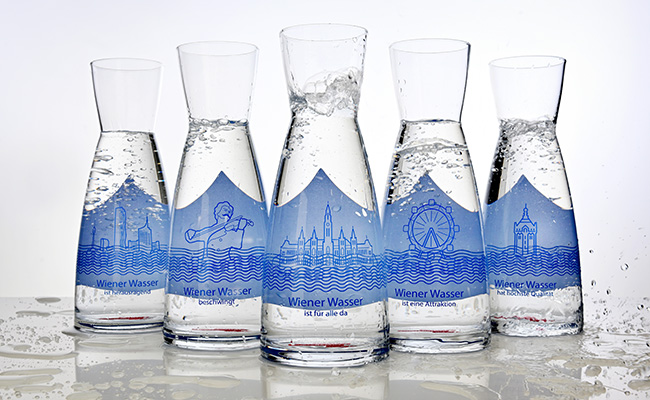New cooperation between the City of Vienna and ICC Water & Health researches Viennese drinking water

© Wiener Wasser/Zinner
The ICC Water & Health starts a new comprehensive research cooperation with the City of Vienna - Vienna Water. Based on the natural water resources of the City of Vienna, many important questions concerning drinking water are to be researched in the long term.
The City of Vienna's testing, inspection and certification body (MA 39) is also involved. On 14 October 2021, the project "Vienna Water Resource Systems 2020+ (ViWa2020+)" was officially launched at a symposium at the Vienna University of Technology.
"The city of Vienna is internationally renowned for its excellent drinking water. Achieving and maintaining this high quality is the merit of the employees of Wiener Wasser. They have the know-how and the necessary view for the challenges of the future. I am pleased that this expertise is also being brought into an exciting research cooperation," says Climate City Councillor Jürgen Czernohorszky.
From natural water resources to drinking water
"Many individual research projects are part of this inter-university cooperation," says Dipl.-Ing. Paul Hellmeier of Wiener Wasser. "For example, we are conducting long-term monitoring of our alpine karst springs, whose microbiological characteristics could change due to climate change. At the same time, tools from the field of artificial intelligence are being developed, which should help in the future to use the appropriate springs depending on the local weather influence in the source area."
Responding to changes
"Changes in natural water resources can also affect drinking water supplies," says Prof. Andreas Farnleitner. Prof. Alfred Paul Blaschke adds "In our research cooperation, we want to develop the necessary tools today to be optimally prepared for these changes."
Probably the biggest global change that will affect our use of water is climate change. Rainfall is increasingly varying, higher temperatures can change the survival or transport of certain hygienically relevant microorganisms. Other challenges need to be kept in mind globally - such as population increases in certain regions and the associated increased wastewater volumes.
"There are also changes in many other areas, for example due to new legal frameworks or new technologies. Innovations in water quality monitoring and water treatment technology are worth mentioning here" explains Prof. Regina Sommer. New DNA analysis methods can track down the sources of contamination faster and more reliably than ever before. Online technologies can monitor important water parameters fully automatically, and new modelling techniques enable a fact-based look into the future.
What all these research topics have in common is that a solution can only be found in an interdisciplinary way. "Therefore, the inter-university cooperation centre Water & Health is ideally suited to address these topics," says Prof. Alexander Kirschner. Kirschner continues: "The City of Vienna plays a very central role in this project - without its funding through Wiener Wasser, the research cooperation would not be possible." ICC Water & Health and the City of Vienna have already worked together on previous projects with great success. The new research cooperation ViWa2020+ is designed for 8 years and has a total budget of over 3.2 million euros, which will be realised through third-party funding from basic research, supplemented by own funds from the City of Vienna - Wiener Wasser.
